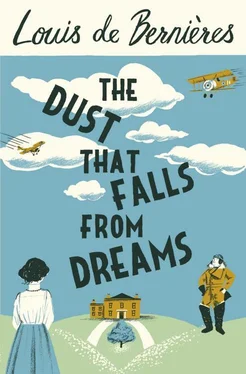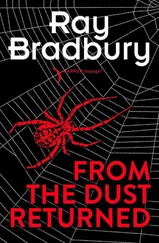‘Yes, sir.’
‘And your mother was Lady Dwyer of Portarlington, my wife says.’
‘Yes, sir. May I ask where this is leading, sir?’
‘Well, Mary. At the Athenaeum we have a copy of the 1915 Burke’s Peerage . It is a large volume, most compendious. I sometimes look in it, out of curiosity.’
Mary went pale and began to bite on her lip. Her fingers were working in her lap, and she looked down at them as if they were foreign creatures. ‘Am I to be dismissed?’ she asked.
‘I was at first greatly annoyed,’ said Hamilton McCosh, leaning back and stroking his chin. ‘No one likes to be taken for an ass. Your references were most persuasive. You clearly have a talent for composition, and indeed for thespianism. And your talk of “the quality” certainly impresses Mrs McCosh. You must have done a great deal of mugging up.’
‘I mug up continuously,’ said Mary. ‘One has to. I have a copy of Burke’s myself.’
‘Hmm,’ said Mr McCosh. ‘I have given this some thought. I have said nothing to Mrs McCosh, and nor do I intend to. You get on very well with Miss Rosie, and Esther plainly adores you. Millicent and Cookie do not resent you, which is quite contrary to what normally happens when a maid and a cook find that a nurse has arrived in the house. Even the cat likes you, and I find your presence most agreeable, and Mrs McCosh is unstinting in her praise. My feeling, Miss FitzGerald St George, is that when a forgery is as good, if not better, than an original, then the wise man contents himself with the forgery.’
‘I am not to be dismissed?’
‘No, Miss FitzGerald.’
She gave a little leap in her seat. ‘Oh,’ she cried, ‘I would have been so sad … and … mortified. And what would I have done?’
‘I do think you should apologise for your deception,’ said Mr McCosh.
Mary Fitzgerald cast her eyes down and said softly, ‘Of course I apologise. I am indeed very sorry. Very sorry. I have hated myself for the deception quite considerably. It was, well … thrust upon me, almost.’
‘Thrust upon you?’
‘I am Anglo-Irish,’ she said. ‘I am the real thing in that respect. It’s just so horrible to be there now. One has no prospects. One feels despised and hated and suspected, and even in danger. The Easter Rising spoiled everything. It was quite the wrongest and stupidest thing to kill all those people and make them into martyrs. It turned everyone against us when they weren’t even mildly against us before. And now the Fenians are at each other’s throats. There’s nothing more vile than a civil war, and what a way to celebrate independence! My father won’t move, and I worry about him continuously. We have a large farm and a big house, but we have no capital to speak of. To whom could we sell such a place in days like these?’
‘I’ve no doubt that eventually you will make a sound marriage,’ said Mr McCosh. ‘You are exceedingly personable. I think it quite likely that eventually you will meet just the right man, not least because of being in this situation with us. One of Master Daniel’s friends will turn up one day, no doubt, and sweep you off your feet. Of course you would then have to undeceive him about being the Honourable Mary FitzGerald St George.’
‘I did have a fiancé, for a while,’ said Mary wistfully.
‘Killed?’
She nodded. ‘At Beersheba. Still, at least we won the battle. It’s some consolation. It would have been so much worse if we’d lost.’
‘I suppose you added the “St George” yourself,’ said Mr McCosh, and she nodded. ‘It was a good touch,’ he said. ‘Jolly good. Well done. Most ingenious.’
SOPHIE AND THE Reverend Captain Fairhead bought a house on 1 March 1920, on the day that Charles Garvice died. Neither of them was a fan of his novels, and they were considerably more saddened when Mrs Humphrey Ward died three days later. On the 17th they attended Queen Alexandra’s unveiling of the statue of Edith Cavell in London, taking Mrs McCosh with them, who was so thrilled by seeing the Queen that she tripped over the spike of her own umbrella in the general rush to get a better glimpse, and made a rent in her skirts.
On the 30th they moved into their new house in Blackheath, just near the top of the village. It was situated in a tranquil street lined with chestnut trees that attracted all the local children in the autumn, when it would become a battlefield littered with opened shells and smashed conkers. Cries of ‘Mine’s a thirty-niner!’ ‘Mine’s an eighteener!’ floated up amongst the eaves. The clever children drilled holes in their conkers with a skewer when they were fresh, and then left them to shrivel and harden in the airing cupboard until the following year. No doubt they made fortunes in later life thanks to their patient good sense. If one were to defeat an opponent, one would automatically acquire their score and add it to one’s own, and so there were exceedingly enterprising children who, when their champion conker was just about to break, would sell the right to the next contest for three farthings. In the summer, residents enjoyed the pink candelabra on the trees, and at night they harkened to the virtuosity and passion of a nightingale which never failed to return. In the autumn it was replaced by a robin, whose voice was just as sweet.
Sophie and Fairhead’s house had a pleasant mature garden planted up with azaleas and camellias. Inside it was dark but not gloomy, and Sophie draped everything with paisley-printed cloths that were both cheerful and casual. They bought mahogany furniture at auction, including an imposing but woodwormy four-poster bed that collapsed the first time they made love on it.
Like Daniel, Fairhead was in a quandary about what to do with his future. It seemed altogether likely that one day they would have children. In the meantime Sophie was content to follow the drum, should he be posted abroad or away, but Fairhead himself declared that an itinerant life was no life for little ones, and, furthermore, he was not sure that he wanted to remain in the army chaplaincy, or even remain a clergyman.
‘I’ve painted myself into a corner,’ he said to his wife one day. ‘I’m unqualified for anything except the Church or a public school. Or, worse, a prep school.’
‘Let’s go into trade,’ suggested Sophie. ‘Mama would be so shocked.’
‘But your father is in trade,’ said Fairhead.
‘Well, Mama does find it shocking,’ replied Sophie. ‘She tries not to think about it. She aspires to inherited wealth.’
‘Well, it’s thanks to Great-Aunt Arabella that we have this house. Let’s not denigrate inherited wealth.’
‘I’d only denigrate it if there were no chance of it. Isn’t it odd that no one is called Arabella any more?’
‘Or Anastasia. Or Rahab. Or Salome. Or Judas. Or Delilah.’
‘I’m not surprised about Salome and Judas and Rahab and Delilah.’
‘No, neither am I. What do you think I should do?’
‘You keep asking, dear, and the only thing I can think of that would really suit would be to be a hospital chaplain, as I keep saying. You are so good with the mortally ill. Simply excelsitudinous.’
‘I don’t really have the faith any more.’
‘Can’t you pretend?’
‘Honestly, darling! What do you think God would want of me?’
‘But you don’t seem to believe in Him any more! And God can’t want anything, can He? If He’s omnipotent He can have whatever He wants whenever He likes, can’t He?’
‘Gracious me, Sophie!’
‘Well, He can, can’t He?’ She paused whilst she unpicked a bad stitch in her embroidery, then said, ‘Why don’t we think about what God would want if we were God?’
Читать дальше












